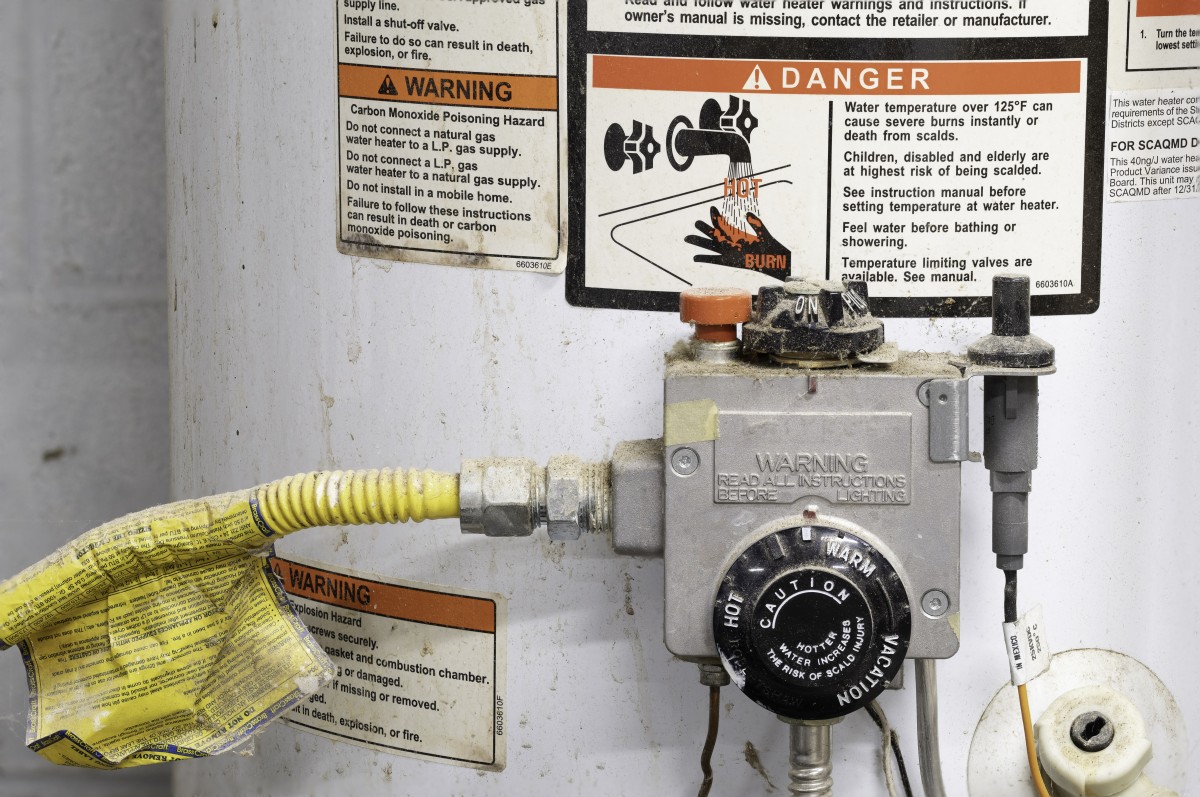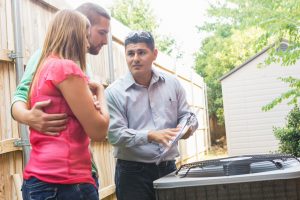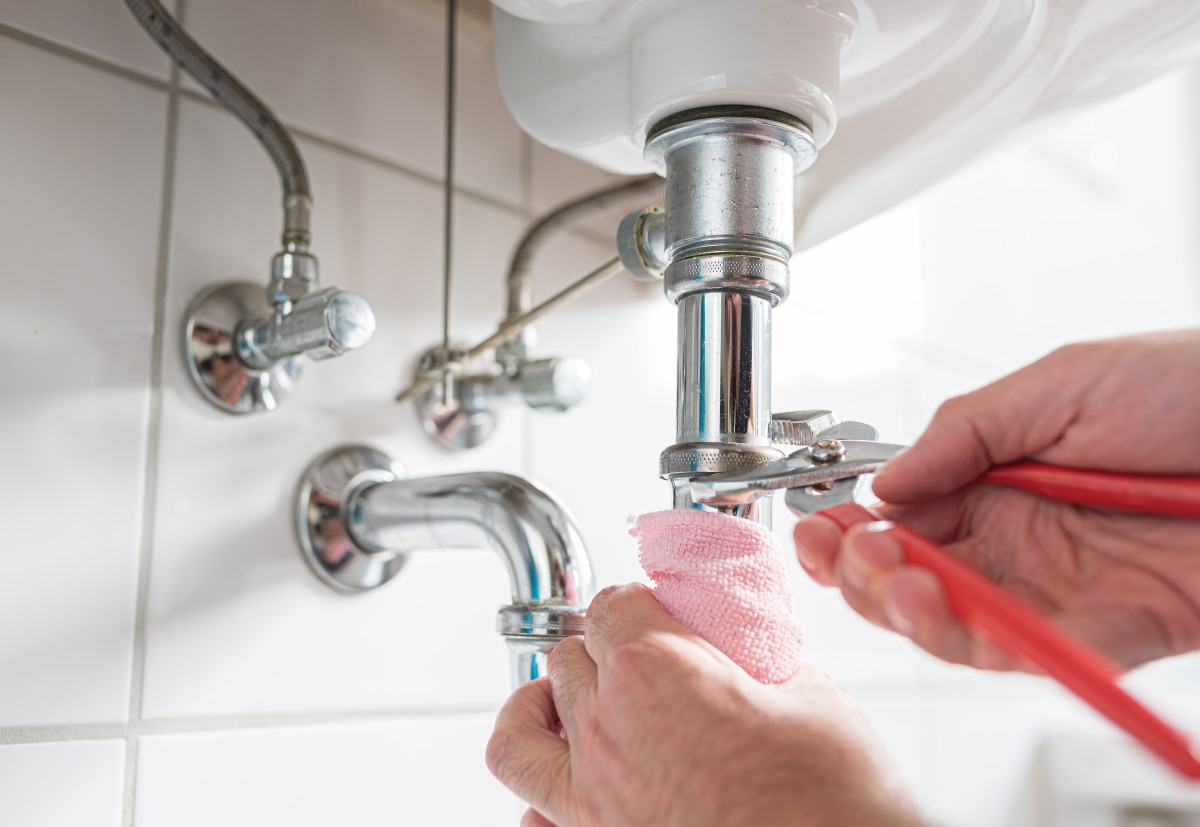10 Signs You Need Professional Drain Cleaning Services
Canada spends a whopping $250 million a year to clean up and get rid of the garbage in its sewer systems. This includes the so-called “fatbergs.” Fatbergs refer to solidified fats, oil, and grease (FOG) mixed with trash.
The plumbing system of your Toronto home is just as prone to developing these fatbergs. If this happens, you’re sure to experience problems with your drains and toilets.
Professional drain cleaning services are the quickest, safest way to address such issues.
How exactly do you tell that you need pros to help clean up your drains, though? Can’t you clear your Toronto home’s drain lines and pipes on your own?
This guide lists the top signs that you need expert drain cleaners as well as when and why DIYs aren’t a good idea.
1. Drains That Take Forever
The most common sign that you need to start cleaning drains is if they now take a lot of time to flume wastewater away. This often occurs due to a clog blocking the drain pipe connected to that specific drain. That can be the drain in your sinks, floor, shower, or tub.
The clogs themselves can consist of FOG, but they can also be larger pieces of food debris. In Toronto, “non-flushables” also lead to hundreds of thousands of plumbing service calls. These are items that clog up drains, and unfortunately, many of them claim to be flushables.
If you only have a single problematic drain, you may try using a plunger to unclog it. If it doesn’t do the trick, you should already ring up a drain cleaning plumbing expert.
You should avoid using chemicals unless you have an in-depth knowledge of how they work. Even a tiny miscalculation of how much to use can cause more damage than good to your plumbing pipes. Incorrect use of these substances can damage your fixtures, sinks, drains, and pipes.
Expert plumbers, by contrast, know exactly which drain cleaners to use for a specific case. They know how much of it to use to ensure that your drains get cleared without the risk of damage.
In many cases, plumbing experts may use a combination of drain cleaning techniques. For instance, they may start the process with the use of an auger, also known as a “drain snake.” If this doesn’t do the trick, they may employ more powerful cleaners, such as hydro-jetters.
2. Slow Moving Drains Everywhere
If you have multiple drains that take forever to channel wastewater out of your home, ring up a plumber ASAP. The slow-moving drains can be anywhere in your home, from the kitchen to the bathroom to even the garage.
Either way, this is a solid sign that you have a major clog in either a branch drain line or the main drain pipe. Branch lines connect individual drain lines to soil stacks that are under your home. All other drain lines then ultimately lead to the main drain line.
So, when any of these lines get clogged, they will affect multiple drain fixtures in your home. However, they are almost impossible to access without professional help. As such, DIY drain cleaning, in this case, won’t do much to help.
For starters, branch lines often run inside walls, ceilings, and under floors. The main drain line, on the other hand, is underground, usually beneath the garden or lawn.
That said, if you notice multiple faulty drains at home, get in touch with a licensed Toronto plumber. The plumbing specialist can quickly determine the cause by using specialized cameras. These video cams allow plumbers to find not only clogs in pipes but also potential water leaks.
By knowing where exactly the clog is, a pro plumber can then take prompt actions to get rid of it. By finding out what makes up the clog, the plumbing expert can use the proper cleaning techniques. All these, in turn, contributes to the faster resolution of your clogged drain woes.
3. Water in Toilets Takes a Long Time to Recede
When you flush the toilet, it should take only a few seconds for the water to recede. Wastes should also disappear with the first flush.
If neither of the two occurs, then you may be dealing with a clogged toilet drain line. There may also be a blockage affecting a branch drain pipe or the main drain line. In either case, such toilet woes warrant a drain cleaning service.
4. Weird Sounds from Drains
Plumbing clogs can cause weird sounds like gurgling or “glugging.” Glugging is akin to the sounds you hear when you rapidly pour a beverage into a glass. In plumbing systems, these noises are usually a result of air forcing its way through the water in a drain trap.
You may also hear bubbling or “whooshing” sounds from drains. These noises can occur as the water enters the holes in the drains, or once it’s flowing through the drain lines.
In these situations, clogs in the plumbing vents are often to blame. The blockage forces air from other than the vent to enter and help push the wastewater. In many cases, this is the air that’s right outside of the drain holes.
Clogs in the drain lines can also be the culprit, as they keep the water from flowing “straight” and with ease. The sounds produced in this case are a result of the wastewater struggling to get past the clog.
5. Bubbling or Gurgling Toilet Water
Have you noticed how the water in the toilet bubbles or gurgles whenever you flush it? You may have also observed this whenever you run the bathroom sink. In either case, these are signs that there’s a clog in a bathroom drain line.
What if this occurs along with multiple slow-moving drains? Then it’s likely your main drain that requires cleaning ASAP.
6. Water Backs Up from Other Drains When You Flush the Toilet
Does water come up of the floor, tub, or shower drain whenever you flush the toilet? If so, then that indicates a clog in one of your drain lines. The clog is forcing the wastewater to back up and then come out of a lower set drain.
In this case, you need drain cleaning services as soon as possible. The wastewater may still recede right after, but it’s still dirty water, which can be full of pathogens.
Scientists say that untreated wastewater is home to plenty of disease-causing organisms. They found that 1,000 to 10 million virus particles can already be in just one ml of sewage. Moreover, wastewater can contain other harmful elements like E. coli and salmonella.
Never underestimate the health dangers of a drain back-up, as it can really make you sick. The thought alone of touching dirty water should be enough to make you ring up a plumber right away. Besides, it’s easier and more affordable to fix small clogs with prompt drain cleaning.
By contrast, allowing clogs to get bigger can result in massive sewer line blockages. When this occurs, you’re likely to end up needing more complex sewer repairs. In addition, clogs in the main drain or sewer line can affect many, if not all, of your drains.
7. Sewer Smells
Sewer gases don’t only smell bad; they can also cause headaches and dizziness. This is especially true for hydrogen sulfide (H2S), the gas that gives sewage the smell of rotten eggs. Exposure to even low levels of H2S can already lead to such symptoms, as well as nausea and diarrhea.
Aside from H2S, sewer gases also consist of ammonia, which is very pungent. It’s also dangerous, especially at high levels, as it’s very toxic and corrosive. Inhalation, for instance, can cause coughing, as well as nose and throat irritation.
On that note, clogged drains and sewers can result in sewer smells permeating homes. For example, a clog in your sewer line may lead to sewage or wastewater backing up into your house. This, in turn, can result in the sewer gases mixing up with the indoor air of your Toronto home.
As such, if your home carries a sewer-like smell, be sure to ring up a plumber right away. You may have wastewater backing up somewhere in your house. Decaying wastes, in turn, may be releasing sewer gases into your home.
8. Moldy Smells
Aside from sewer odors, water back-ups from clogged drains can also make your home smell like mold. That’s because the backed-up wastewater can raise your home’s indoor moisture level. This, in turn, can lead to higher levels of indoor relative humidity (RH).
Unfortunately, molds and most other species of fungi thrive in RH levels of over 60%. If your home’s indoor moisture exceeds this, molds can start growing and spreading. The longer these fungi remain in your home, the larger their colonies can get.
There are many other causes of indoor molds, though, such as leaking water supply lines. Still, plumbing issues, especially water back-ups, are some of the most common. That’s why you should be proactive in keeping your drains clean and clear of clogs.
In case your home smells like a gym locker, stale bread, or damp socks, take that as a sign of mold growth. It’s best to get in touch with a licensed Toronto plumber to determine if the issue is with your plumbing system. Plumbing professionals can pinpoint problems like drain clogs, back-ups, or hidden water leaks.
9. More Encounters With Pest and Vermin
The smell of waste can attract unpleasant visitors, like rats, roaches, and flies, to your home. The odor of rotting food debris that makes up plumbing clogs can then cause these pests to invade your home.
Plumbing back-ups can release all these smells that beckon to pests and vermin. Keep in mind that mice can squeeze their way into US nickel-sized holes. That’s how easy it is for these rodents to invade your home and cause diseases and property damage.
Roaches, being sewer-dwellers, also thrive in environments packed with the smell of wastewater. They don’t cause as much property damage as rats or mice, but they still carry at least six species of parasites.
If you’ve seen more flies at home, it’s also possible that you’ve had a recent plumbing back-up. Sewage provides these pests not only food but also breeding grounds. They’re pesky enough as it is, but they can also carry and transport germs all over your home.
It’s a good idea to get in touch with a plumber if you’ve had more encounters with these critters. A plumbing specialist may only need to clean your drains to prevent future back-ups. However, it’s also possible that you have a cracked sewer line that needs prompt repairs.
10. Recurrent Clogs, Toilet Overflows, or Back-ups
A plunger may help clear blocked lines, so long as the clog is small enough or if the issue occurred for the first time. However, if you’ve had these problems several times now, then you may be dealing with a larger clog. Blockages in many drain lines or multiple clogs may also be giving you all these headaches.
Even if you keep plunging away, it may no longer be enough to dislodge larger clogs. Also, if you’re dealing with multiple clogs, your efforts will likely only go to waste.
In such cases, it’s best to leave the drain cleaning task in the hands of skilled plumbers. This way, they can address the root cause of your plumbing issues, and not just the symptoms.
Restore the Function of Your Drains With Prompt Drain Cleaning Services
As you can see, there are many signs that can help you tell if you need professional drain cleaning services. Again, you may be able to clear a clog on your own, given that this is the first time it happened. However, if it’s a recurrent issue, or if the other symptoms listed here also occur, then that’s your cue to go with a pro.
Ready to make all your drains fully-functional again? If so, then please don’t hesitate to drop us a line here at Anta Plumbing & Drain. We offer round-the-clock services, so we can get those drains cleared and cleaned for you, any time of the day.
The post 10 Signs You Need Professional Drain Cleaning Services first appeared on Anta Plumbing Blog.
This post first appeared on https://blog.antaplumbing.com
 The water in the sink or the bathtub or the shower is not going down the drain, or is not going down the drain fast enough. You’ve got a clog in the drainpipe, but what?
The water in the sink or the bathtub or the shower is not going down the drain, or is not going down the drain fast enough. You’ve got a clog in the drainpipe, but what?

 What’s the most important thing in your home here in Florida? We’re not talking about your prized possessions, your furry friends, or even your loved ones—we’re speaking very practically here. What’s one thing that you would struggle to go a week or even a day without? Your water!
What’s the most important thing in your home here in Florida? We’re not talking about your prized possessions, your furry friends, or even your loved ones—we’re speaking very practically here. What’s one thing that you would struggle to go a week or even a day without? Your water! What does it mean to go pro? Is hiring a professional for all your HVAC needs too expensive? Well, we’d absolutely say no to that. Professional HVAC service is the first line of defense against pretty much all problems that your comfort system will run into. The price might be higher than the amateur who lives down the street, but it’s worth every penny.
What does it mean to go pro? Is hiring a professional for all your HVAC needs too expensive? Well, we’d absolutely say no to that. Professional HVAC service is the first line of defense against pretty much all problems that your comfort system will run into. The price might be higher than the amateur who lives down the street, but it’s worth every penny.



 Do you actively practice ways to conserve water in your house? We hope so, because there’s massive water waste across the country, and most of it is preventable through several basic steps. You already know about taking shorter showers: keep showers to five minutes and the savings over the year are enormous. There are other little tips, like shutting off the water while you’re brushing your teeth, or never running the dishwasher unless there’s a full load.
Do you actively practice ways to conserve water in your house? We hope so, because there’s massive water waste across the country, and most of it is preventable through several basic steps. You already know about taking shorter showers: keep showers to five minutes and the savings over the year are enormous. There are other little tips, like shutting off the water while you’re brushing your teeth, or never running the dishwasher unless there’s a full load.